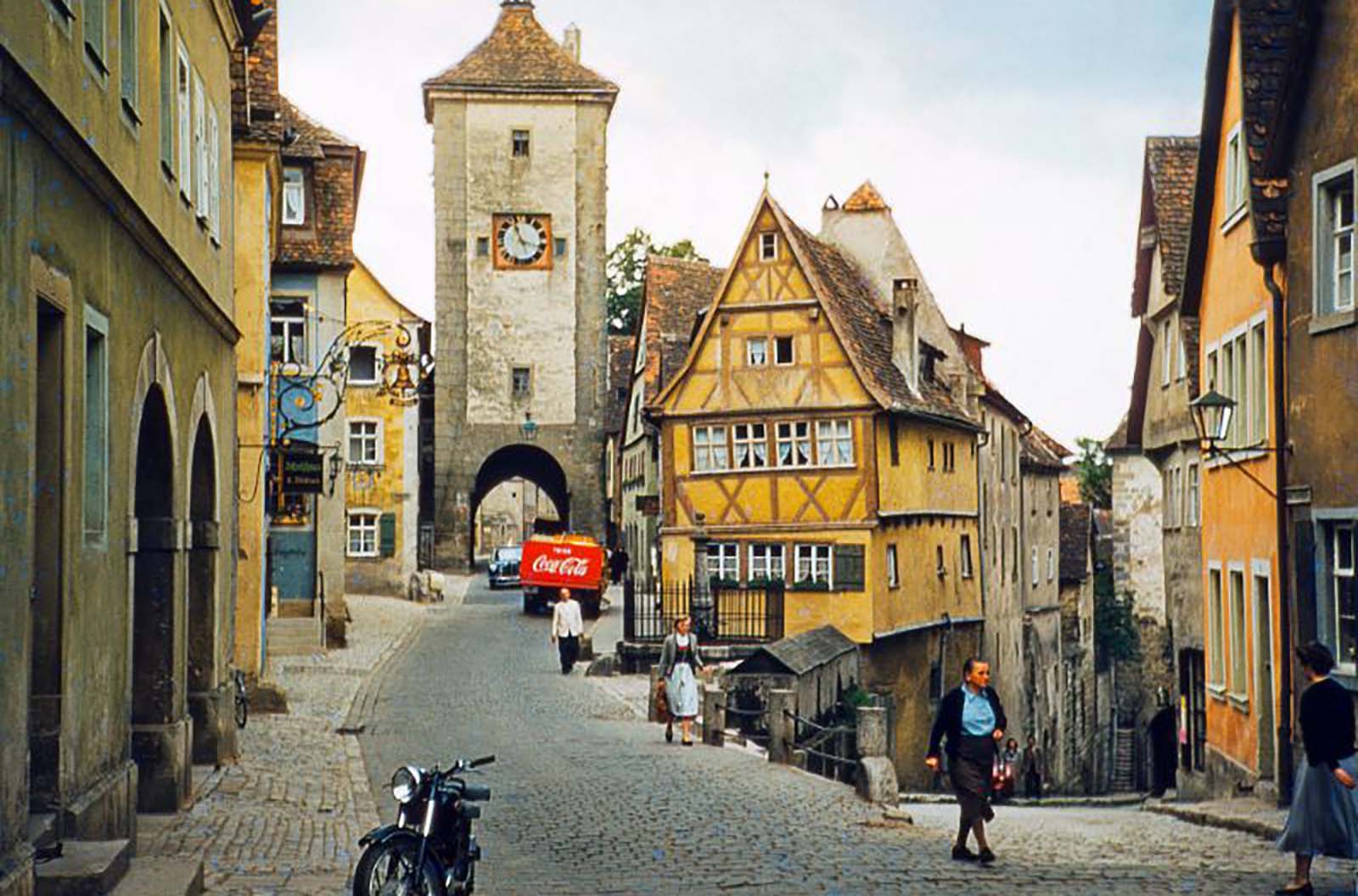 The colorful slides open a rare window into West Germany in the early 1950s, a country still rebuilding from the devastation of the Second World War.
The colorful slides open a rare window into West Germany in the early 1950s, a country still rebuilding from the devastation of the Second World War.
They are believed to have been taken by a U.S. Army nurse stationed at the 97th General Army Hospital in Frankfurt during 1952 and 1953.
At the time, Frankfurt was not only a hub for American military operations but also one of the many cities undergoing rapid reconstruction, where ruins stood alongside new buildings and signs of recovery.
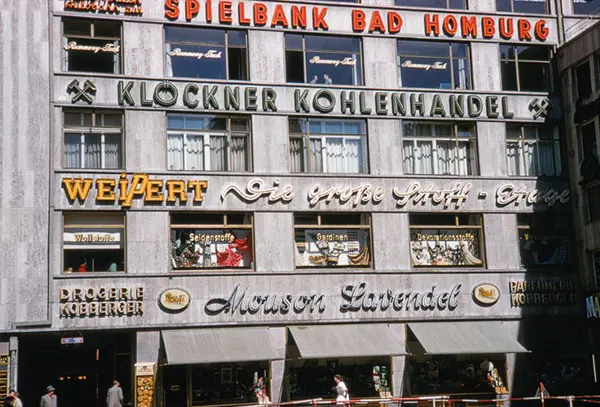
Commercial Building, Hauptwache, Frankfurt Am Main.
Like many U.S. service members stationed abroad, the nurse used her free time to travel, capturing vivid glimpses of life beyond the hospital walls.
Her Kodachrome slides record moments from across West Germany, showing a society balancing tradition with change.
Markets bustled with activity, young families embraced new beginnings, and streets reflected both lingering wartime scars and the energy of renewal.
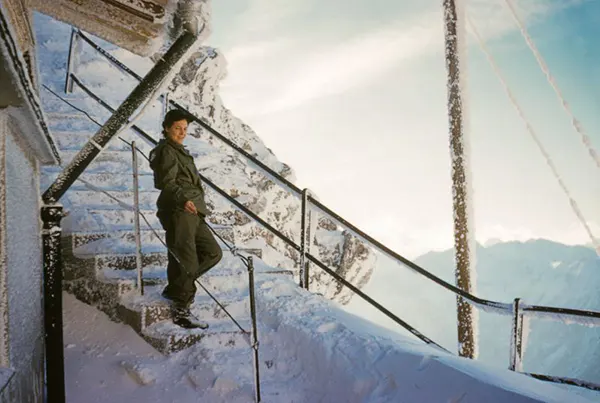
On Mount Wendelstein.
In the years following World War II, Germany was divided into four occupation zones, each administered by one of the Allied powers—the United States, Britain, France, and the Soviet Union.
Berlin, although located deep within the Soviet sector, was similarly split into four sections.
What was initially intended as a temporary arrangement soon revealed itself to be far more lasting, as growing Cold War tensions deepened the divide between the communist East and the Western-occupied zones.
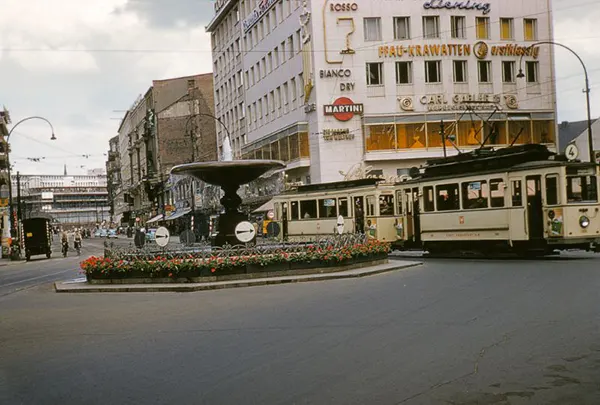
Kaiserplatz, Frankfurt Am Main.
By 1946, the differences were already stark. That May, the United States ended reparation shipments from its zone to the Soviet Union, signaling a shift in policy.
Later that year, Washington and London merged their zones into what became known as Bizonia, laying the groundwork for a unified West.
France eventually joined the arrangement, and by May 1949 the three Western zones had formally combined, setting the stage for the creation of the Federal Republic of Germany.
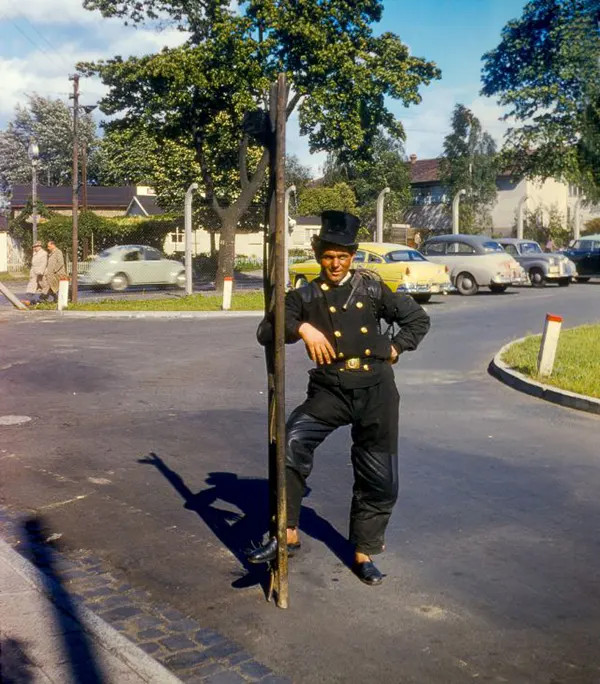
Chimney Sweep, outside 97th General Hospital, Frankfurt.
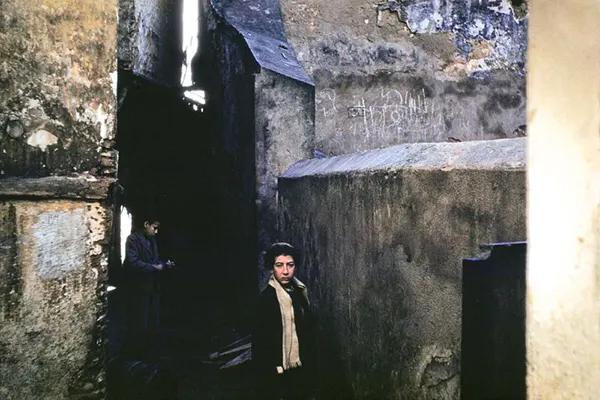
Amongst the ruins, Bavaria.
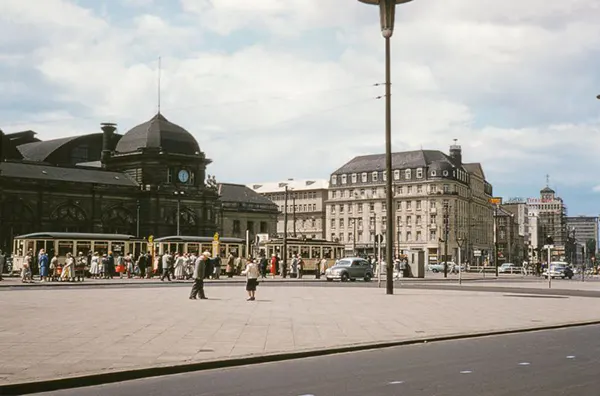
Frankfurt Railway Station, Frankfurt.
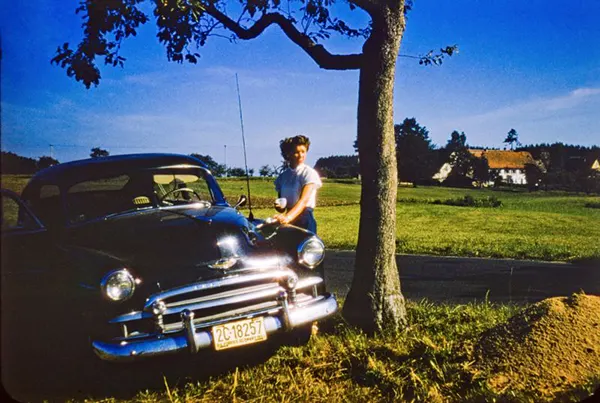
Traveling around Bavaria, in a 1951 Chevrolet.
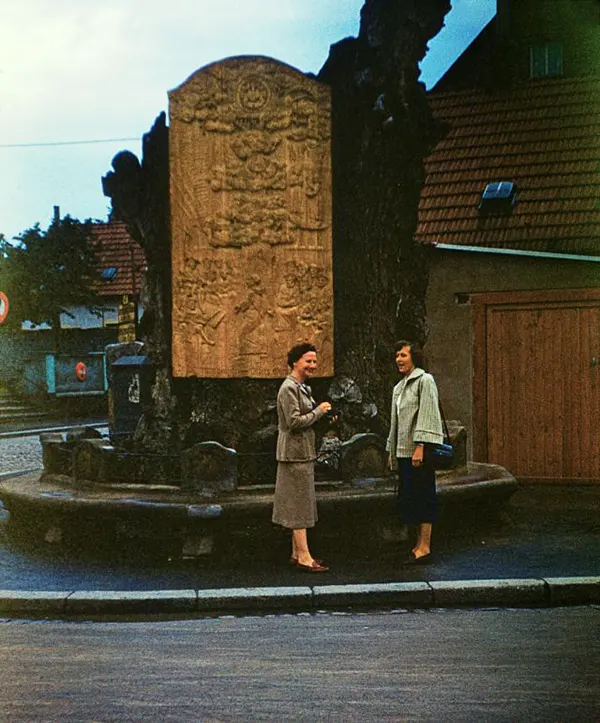
Luther’s Tree, corner of Alzeyer Strasse and Lutherbaumstraße, Worms.
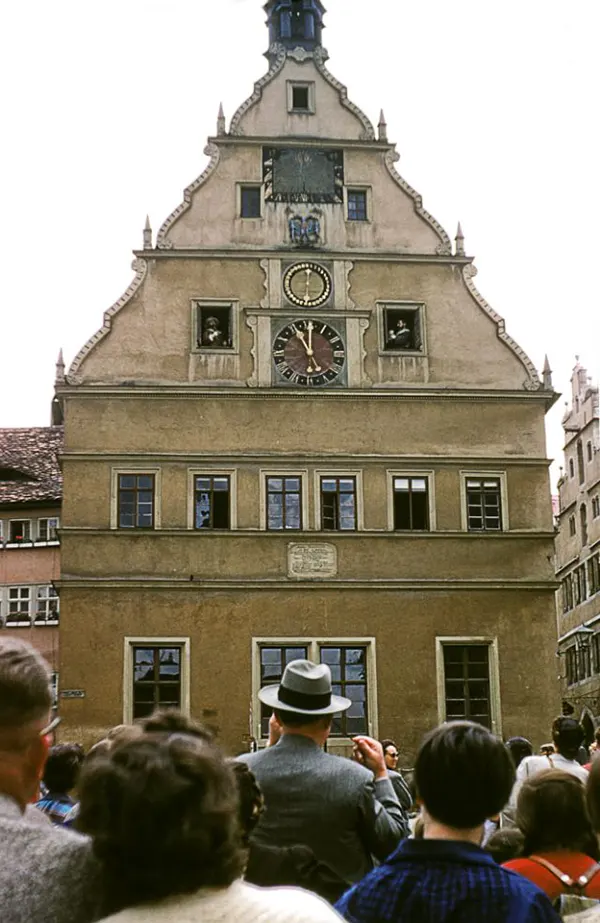
People watching the mechanical clock strike the hour, Market Square, Rothenburg.
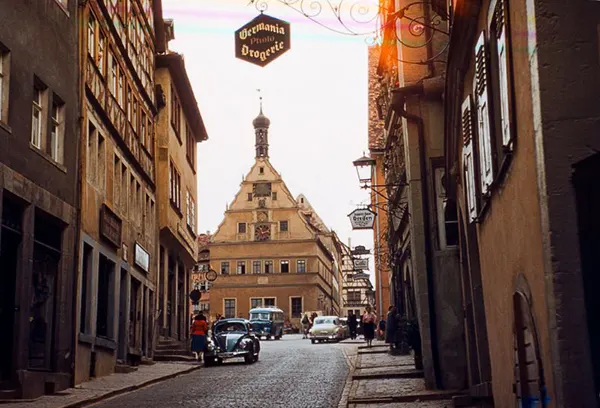
Ratstrinkstube Clock Tower, Rothenburg.
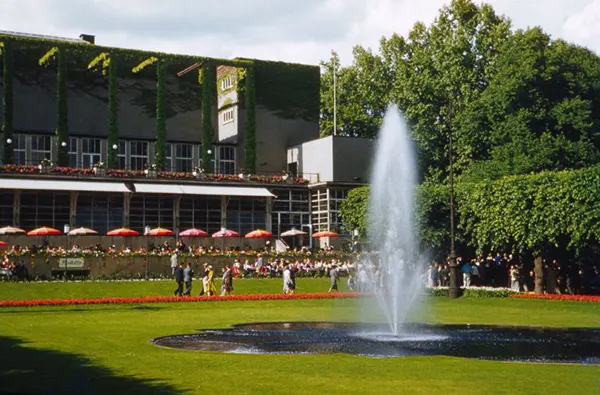
Bierkeller at Palmengarten, Neues Pflanzenhaus, Frankfurt.
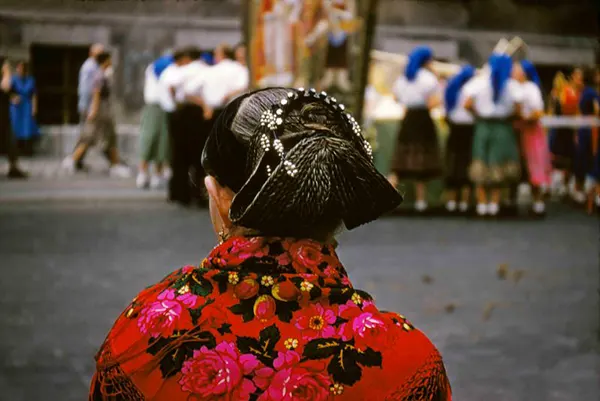
St Kilian’s Festival, outside the Röntgen High School, Wurzburg.
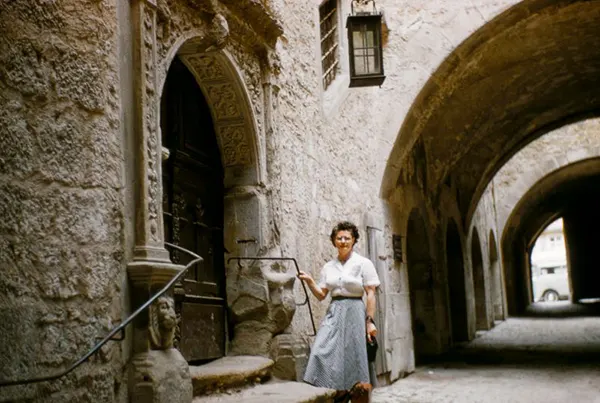
In the tunnel or covered street under the Rathause, Rothenburg.
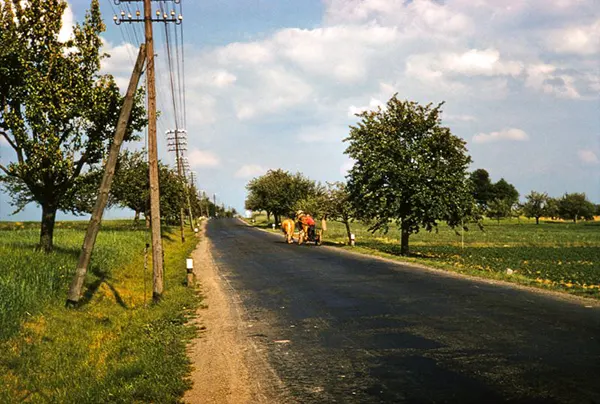
West Germany.
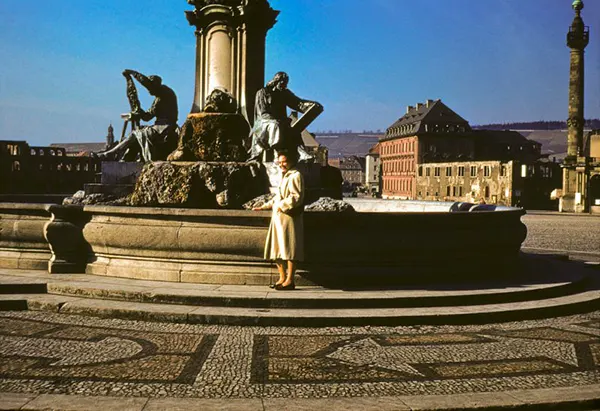
Frankonia Fountain in the Forecourt of Residence Wurzburg, Wurzburg.
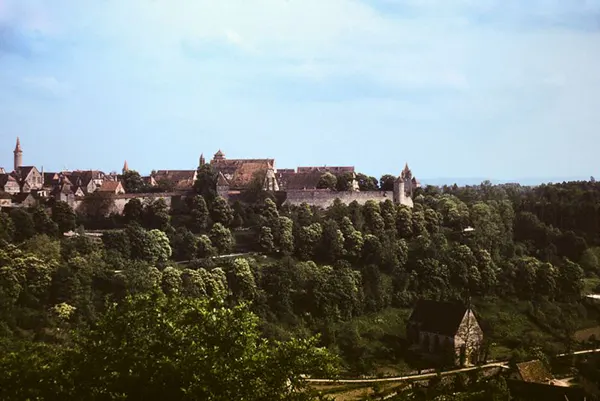
View from the Aussichtspunkt Viewpoint of Rothenberg.
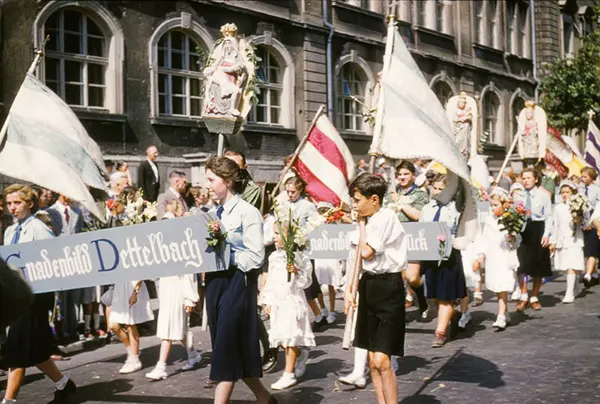
St Kilian’s Festival, outside the Röntgen High School, Wurzburg.
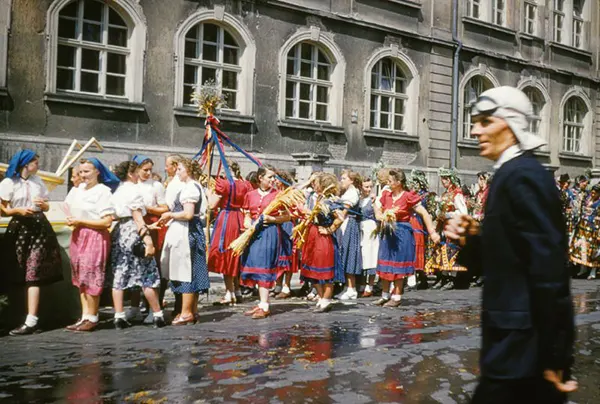
St Kilian’s Festival, outside the Röntgen High School, Wurzburg.
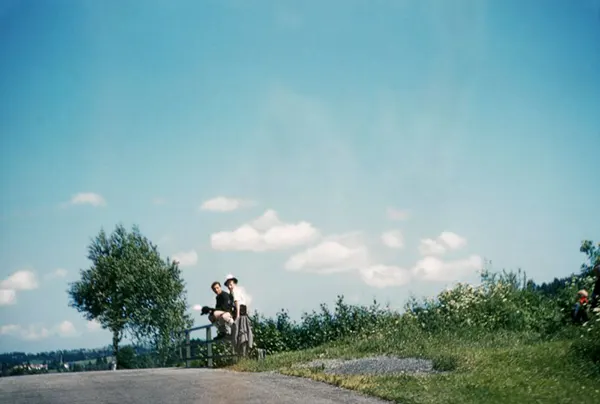
Two men in Lederhosen.
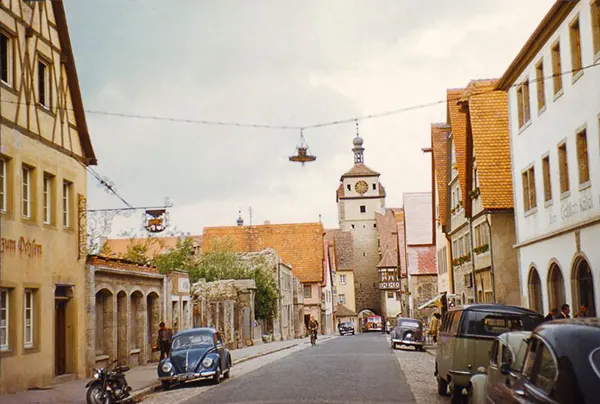
Weißer Turm (The White Tower), Galgengasse, Rothenburg.
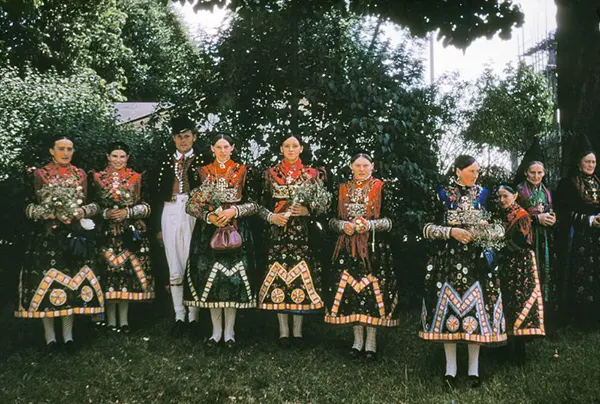
Several Women and a Man in traditional costumes, Spring or Folk Festival, Wurzburg.
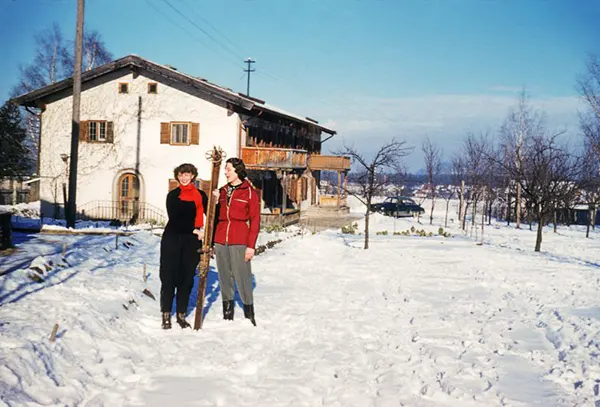
Skiing in Bavaria.
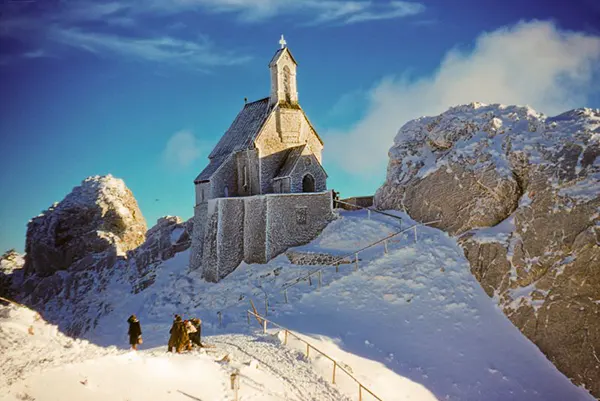
Wendelstein Church on Wendelstein Mountain, Bavarian Alps.
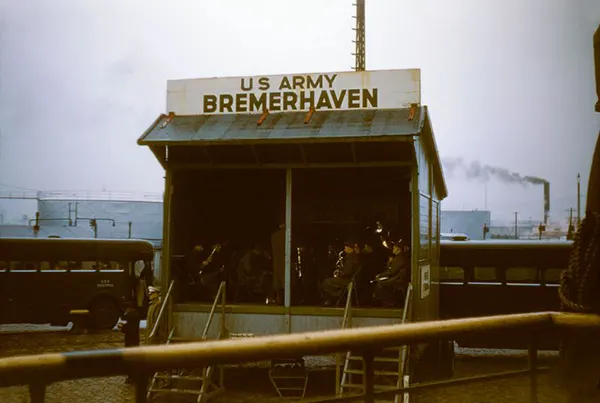
61st Division US Army Band, Bremerhaven.
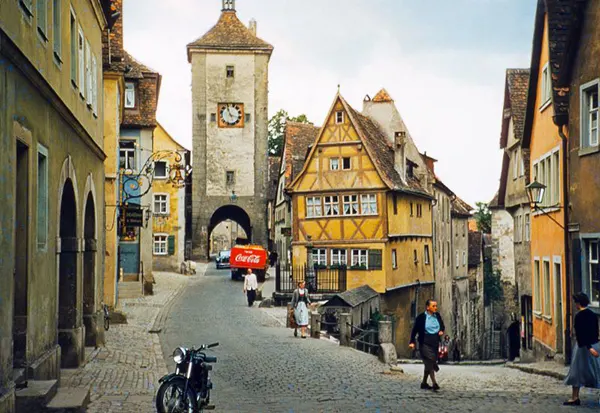
Siebers Tower, Rothenberg.
(Photo credit: gbfernie5 via Flickr / flickr.com/people/76580860@N02).